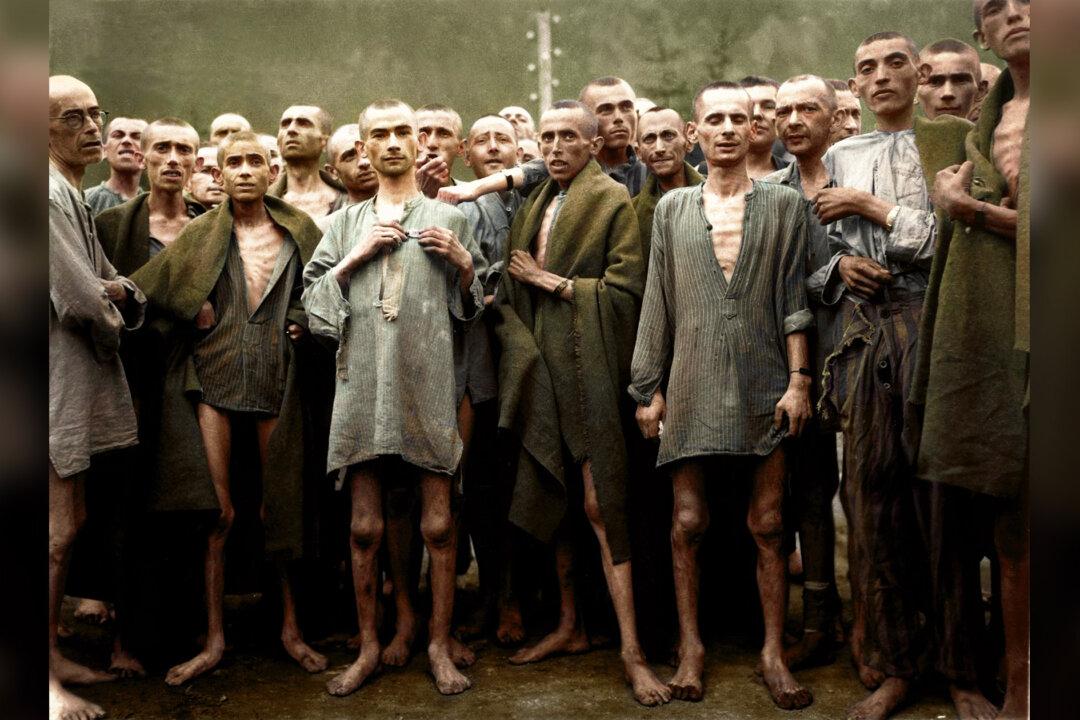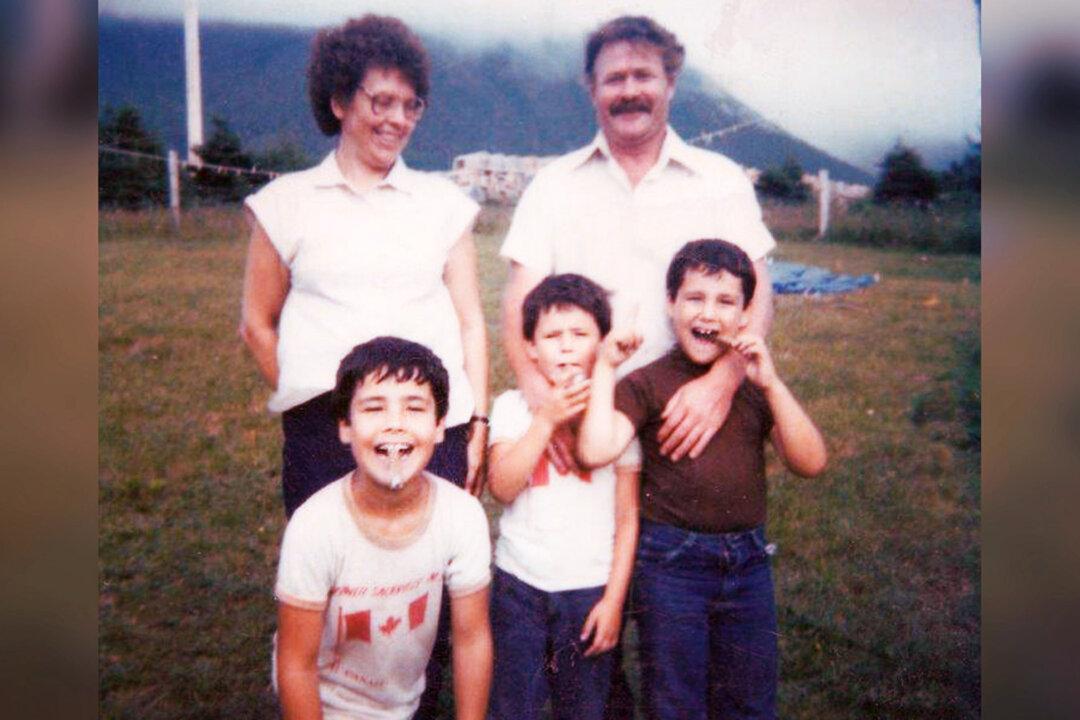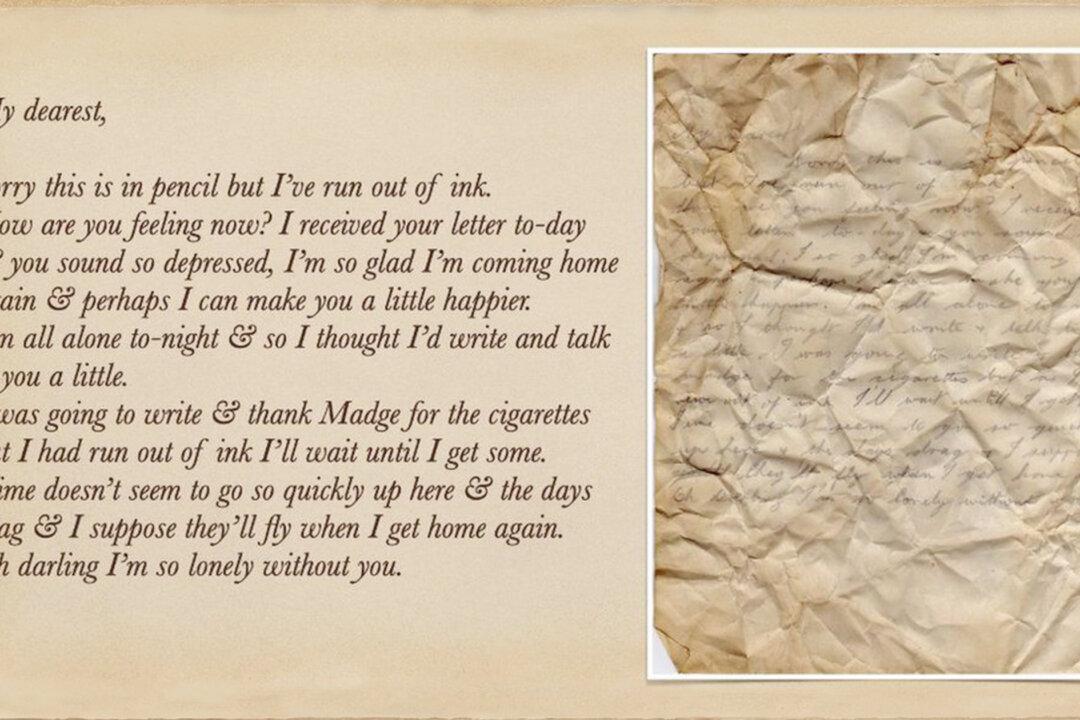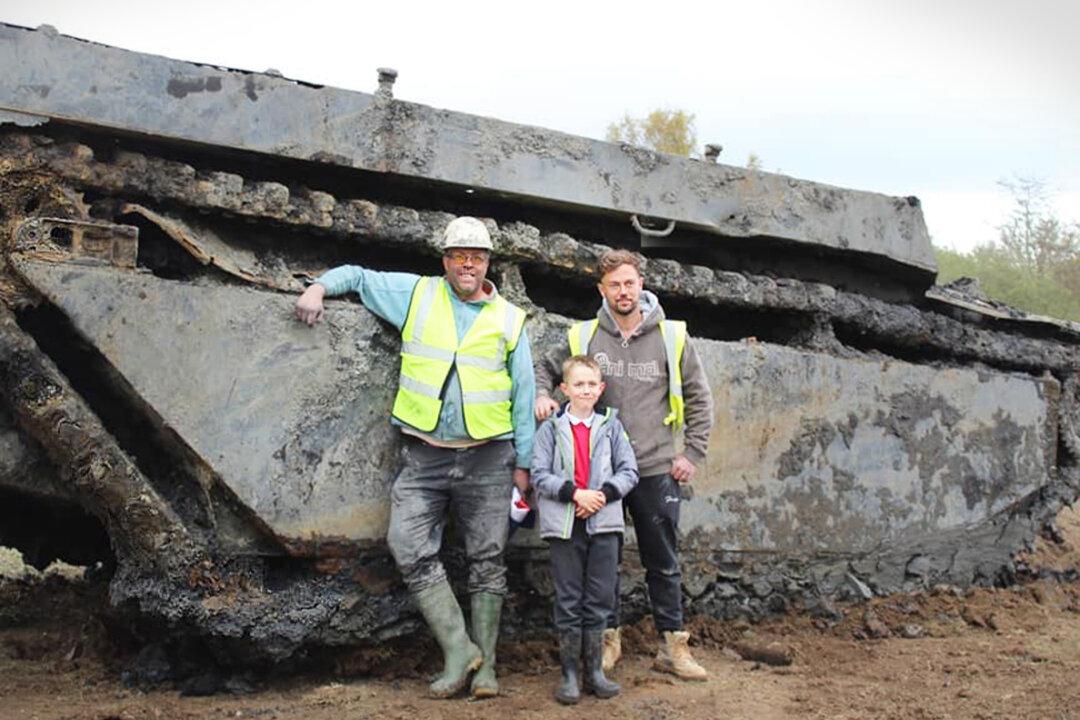Photographer Tom Marshall has grabbed the attention of thousands by adding color to black-and-white photographs of the Holocaust, making distant-seeming faces seem vivid and recognizable.
His updated photographs are both striking and horrifying, bringing to light the depth of suffering that happened in the concentration camps of World War II.






